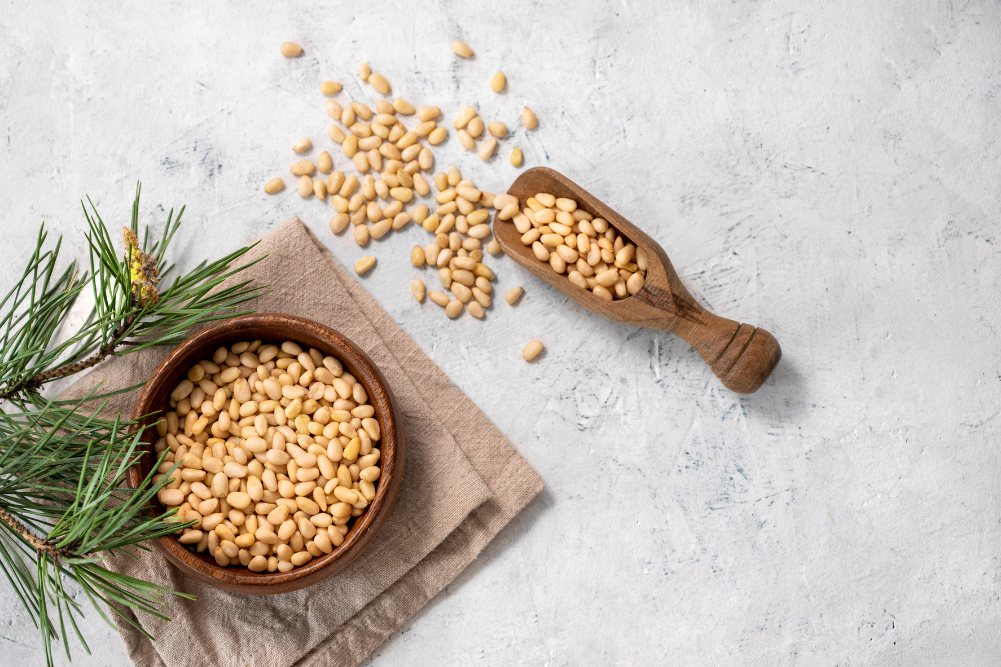Using lemon balm for calm
Lemon balm (Melissa officinalis) is a member of the mint family and is grown not only in herb gardens or to attract bees but also in crops for medicine, cosmetics and even furniture polish manufacturing. The plant grows up to two feet high and, in the spring and summer, clusters of small, light-yellow flowers grow where the leaves meet the stem. The leaves range from dark green to yellowish green in colour, depending on the soil and climate. If you rub your fingers on the leaves, your fingers will smell tart and sweet, like lemons, and since the plant has calming actions it is no surprise it has come to be known as “lemon balm”.
Lemon balm in your body
Medicinally, lemon balm was used by the Greeks and Romans after steeping it in wine to treat wounds and insect bites. It was in the Middle Ages that it started to be used internally as a sedative and by the 1600s English herbalist Nicholas Culpeper was claiming it could improve mood and stimulate thinking. It is these actions in the nervous system for which it is best known today.
Lemon balm supplements are made from the leaves of the plant and contain flavonoids, phenolic acids, tannins, triterpenes, choline, caffeic acid, essential oil and sesquiterpenes. The essential oil of lemon balm contains terpenes, which play at least some role in the herb’s relaxing and antiviral effects. Eugenol and citronellol bind to GABA receptors and therefore cause relaxation. The tannins may be responsible for many of the herb’s antiviral effects. As well as being calming, eugenol eases muscle spasms, numbs tissues and kills bacteria.
Growing and harvesting methods have a significant impact on how much essential oil is present in the herb. The top third of the leaf, for instance, is considerably higher in essential oil than the bottom two-thirds. So you may get variation from one lemon balm product to the next.
Uses
Sedative & anxiety-reducing
Studies involving mice and rats have shown that lemon balm does have sedative and anxiety-reducing properties. In humans the evidence is less conclusive. Several studies show that lemon balm combined with other calming herbs (such as valerian, hops and chamomile) helps reduce anxiety and promote sleep. For example, in one study of people with minor sleep problems, 81 per cent of those who took a herbal combination of valerian and lemon balm reported sleeping much better than those who took placebo. It’s not clear from this and other studies whether lemon balm or valerian (or the combination) is responsible for the result. The same is true of several studies for anxiety, which used a combination of herbs to reduce symptoms.
There was one study, however, that was a double-blind, placebo-controlled study involving 18 healthy volunteers given two separate single doses of a standardised lemon balm extract (300mg and 600mg) or placebo for seven days. The 600mg dose of lemon balm improved mood and significantly increased calmness and alertness.
The German Commission E approves lemon balm for the treatment of anxiety and restlessness.
Antiviral & cold sores
Some studies suggest that topical ointments containing lemon balm may help heal cold sores caused by the Herpes simplex virus (HSV). In one study of 116 people with HSV, those who applied lemon balm cream to their lip sores experienced significant improvement in redness and swelling after only two days.
Another large study involving three German hospitals and a dermatology clinic showed that, when lemon balm was used to treat the primary infection of HSV, no recurrence was noted.
The reason lemon balm appears to assist with cold sores is that the essential oil has been shown to stop the Herpes virus reproducing.
Alzheimer’s disease
Research shows that lemon balm extract has actions in the central nervous system, that it inhibits the enzyme acetylcholinesterase and has a mild affinity for GABA receptors. This adds up to indicate that it should be of some use in Alzheimer’s disease and, indeed, one study where patients were given 60 drops of lemon balm a day for four months found that those people has significantly better cognition and reduced agitation.
Taking lemon balm
If you are taking fresh herb of lemon balm, you need 1.5 to 4.5 grams three times daily. As a tea, that means 1.5–4.5g steeped in 150mL of water. Using a 1:1 fluid extract, you need 6–12mL daily. Extracts vary in strength and dosage; use a standardised extract if you can and consult your health practitioner for dosage.
For cold sores or herpes sores, steep 2–4 teaspoons of crushed leaf in one cup of boiling water for 10–15 minutes. Cool and apply tea with cotton balls to the sores throughout the day. Alternatively, use an ointment with a strength of 700mg of lemon balm per gram of ointment and apply four times daily.
Precautions
Lemon balm should be used with caution if already using sedative medication, barbiturates and cholinergic drugs. It should also be avoided in cases of hypothyroidism and, if pregnant, consult your practitioner before taking.
- References available on request.





